Does one need to write a book to be considered a writer? Who is an author? Who is a writer? And does it count that I used to write novels and poems, and none of them are published? This blog post comes out of some of the thoughts that cross my mind as I engage more and more with the #WritingCommunity on Twitter. I often end up in this cycle of asking myself if I am a writer when I see this question (if you follow the #WritingCommunity, you know this gets asked A LOT!)
#WritingCommunity How is your WIP going?
And other variations
WIP stands for Work in Progress and as much as my dear author friend, Stephen Zimmer, advocates for me to think of myself as a writer, I get stumped by this question. If you are a blogger, any kind of blogger, I bet questions similar to this one come up in your niche too. Today, I want to take a deeper look into why I hesitate to answer this question. To do so, I will analyze my biases that arise, and from there, I’ll talk about the main role I play in the writing community as a ‘bookblogger’.
Next, I’ll offer some ideas on how you, the reader, can help me, and my fellow bloggers, bookbloggers, specifically, grow. To conclude, I’ll also mention some of the wonderful inspirations in the writing world.
I hope that this thought process is useful to you and I welcome and encourage you to continue the conversation with me in the comments, or via email, and with your peers.
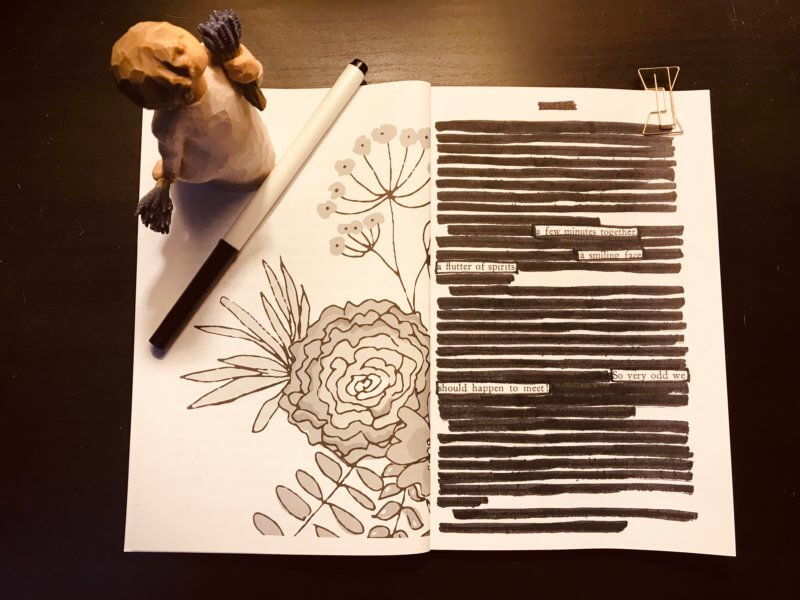
Part 1: Who is a writer? – Uncovering my biases
Let’s try something. Take a look at each of the following words individually. For each word, note one word that crosses your mind when you read the given word:
| novel | book review |
| song | games |
Now think again: how many of these shout out storytelling to you?
Storytelling comes in many forms, including theater, gaming, Film/TV, blogging, songs/lyrics, novels novellas, short stories, poetry and more. A writer is one engages in the art of writing, and creative writing is the foundation behind all of the above. So, I definitely agree!
— Stephen Zimmer (@SGZimmer) August 21, 2019
I looked back through my tweets and found the above conversation with Stephen. You know what I realized? I realized that my first bias is that part of me does not consider blogging as storytelling.
As a bookblogger, a lot of what I do can be categorized as book reviews (if you have read any of mine, you will know I call them something different). The phrase ‘book review’ tells you that what you will read next will describe the book, express some opinions about how it was organized or about the characters, or maybe tell you how the reader engaged with the book. If you are author, you might find areas you can improve upon next time. As a reader of the blog/review, you might decide to read the book yourself.
There is so much time and effort that goes into writing these book thoughts. And yet, even after being immersed in books for roughly three months and writing about them, my first bias is that I don’t do storytelling?! I’m ashamed to admit this.
But, now I know.
So, let’s counter that!
Bookbloggers, bloggers, we are all storytellers. We put our heart and soul into our blog posts. We write to share our love of a certain book with them and get them to love that book as much as we did. We weave a short story out of the long story of the book we just read!
You are a storyteller. Believe it or not. And by Stephen’s definition, that makes you a writer. And me too! 🎉
As for that question about WIP: every single group of people who specialize in something develop their own vocabulary. When authors ask other authors about WIP they are asking about a book in the works.
That’s my second bias: I assume that even though the tweet is for the #WritingCommunity, I do not have a Work in Progress so I cannot answer it.
But here’s the truth: I can answer it.
And all I need to do is instead of thinking of Work in Progress as ‘a novel in the works’, it is ‘a story in the works’. And as a bookblogger, that story is the book I’m currently reading, because I know that as I read, I am already thinking about that blog post that I will write about it. About the quotes that I must memorize because the author was able to say it better than anyone else I have ever met/read.
When I asked fellow bookbloggers, who are not writing any novels right now, if they consider themselves writers, I got the sense that it takes us a moment to tell ourselves that we are writers. As an important part of the #WritingCommunity, there should be no one second or milli-second pause to acknowledge being a writer.
The writers category is quite broad and if there a word or abbreviation that stops me from answering a question because I are a blogger and not working on a book right now, then there is a bias that needs to be counter. I do not have to make a leap to an author to be a writer.
But now you might think why does all this matter: Why so many titles of ‘authors’, ‘writers’,’blogger’,’bookblogger’? I think it is more about realizing that everyone has their own role to play as a writer.
For me and my peers, it’s about reading and learning from the books. For the authors, it might be about getting their words out there and finding readers who truly care as much as they do about their stories. But you know, it is not just bloggers and authors. Think about editors, beta readers, blog tour organizers… every single one of them contributes to the #WritingCommunity in their unique way, by writing in their unique way.
And none of us should feel hesitant to share our WIP. We can’t be in our minds’ silos and expect to grow.
Part # 2: Writers helping Writers – What you can do for Writers
I hope so far, I have been able to convince you that bookbloggers are writers, and that you can identify as a writer in numerous ways and forms. I w ant to narrow the focus to bookbloggers for this section.
We are writers but most importantly, we are students of writing.
We are always learning from the best of the best out there – from those who have established themselves, whether through self-publishing or collaboration with big publishers. We love our authors dearly and do everything to support them, by telling about their books to friends and followers, posting beautiful pictures with the books, buying following books,… And though we don’t say it, we expect the same camaraderie from our authors and readers.
Be our teachers!
- Talk to us.
Reach out to us about your work, whether it is a blog or a book. If we have already posted about it, then that’s a great conversation starter. Engage in a discussion with us. Keep in the loop about your other works! If you look through my blog, you will find accounts of teachers and published authors, and conversations with friends. Armed with A Book is always open to guest posts, and if you want to be my guest, connect with me. - Critique our work (or you can just start with mine).
I do not have an editor nor an English degree to guide my writing. Tell me places I can improve upon that will help you and my future readers. There won’t be any writing if there wasn’t any reading so help us improve. But, as my author friend Angela Savage says, remember to be kind. - Get other people reading and critiquing our work. – See above.
- Give us more books to read, and to be clear, I mean suggestions. – How can I let this opportunity go? 😉
But most importantly:
Create opportunities for collaboration.
Guest blog on my blog and others. Talk to people. Post a conversation. Buddy read a book. Make friends. That’s how the #WritingCommunity grows stronger: by writing together.
Next year, my plan is to buddy read at least one book every month with another reader. I still have slots open from April – December 2020. Come buddy read with me (check out my two discussions [Part 1, Part 2] with Varun about The Book of M which we were reading together in September 2019)!
Part # 3: What books have taught me about writing
Tell me and I forget.
Chinese Proverb or Benjamin Franklin? Quote Investigator has an interesting article on who gets credit.
Teach me and I understand.
Involve me and I learn.
As a bookblogger and avid reader, my discussion about writers and writing is incomplete without talking about some of my favorite books. Not all of them are dedicated to the art of writing, but each of them is a demonstration of this same art by the authors themselves. By letting me read your work, engage my thoughts further on your own words, authors and all you writers out there, allow me to learn, about life, about writing, about decisions, about so much more! You always keep me thinking on my feet.
Here are 5 authors and their books that are an inspiration to me. 🙂
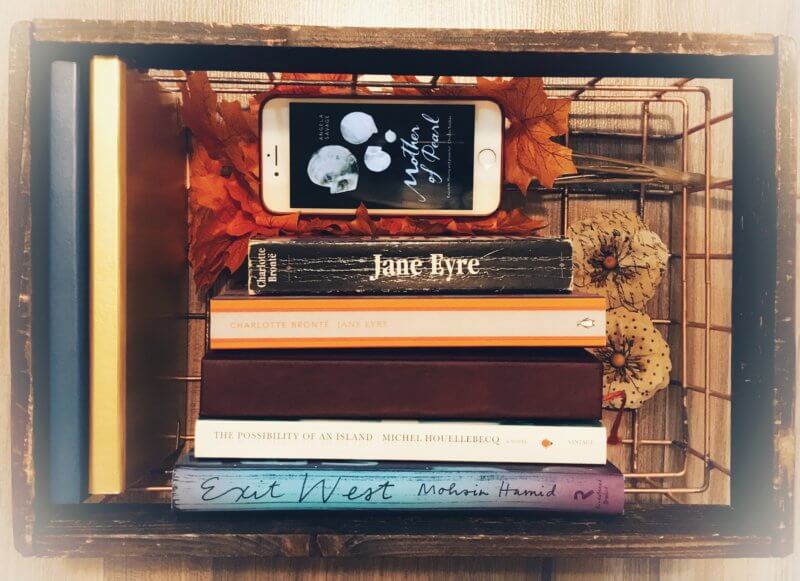
# 1 Georgette Heyer’s Friday’s Child
[The one in red above. My copy is from 2008. My aunt gave it to me.]
Regency romances. For a while, I was on a mission to read all Georgette Heyer books. Friday’s Child is my absolute favorite and one I go back to once a year to have a good laugh. That book always causes laughter cramps in my tummy. If I am thinking of a scene in this book, I can find it in the book within a couple minutes, even if I have not touched the book in a long while.
It’s about this girl named Hero who wants to run away from home. While sitting on the wall of the house, debating her decision, she meets the Viscount, a dear friend of hers. She has been in love with him all along but like any twenty-something man who is used to attention from the ladies, he does not know about it. Anyway, all his money is tied up in a fund and the only way for him to get it is to get married. The girl he wants to marry has refused him and then he finds his friend, Hero, who wants to run away from home. What does he do next?
Of course, he asks her to marry him!
The rest of the book is the adventures of the Hero, the Viscount and his friends, George, Gil and Ferdy. Ferdy is the best. This book is not for everyone but if you read it, I bet you will love it. I have never read a better description of longing, caring and falling in love, before. Or seen gentlemen scold each other or name a wedding present (canary) after the friend who gifted it. Gil is a great name for a canary!
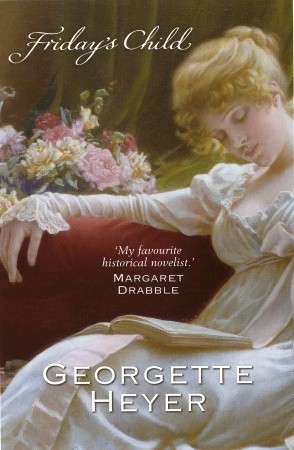
Friday’s Child 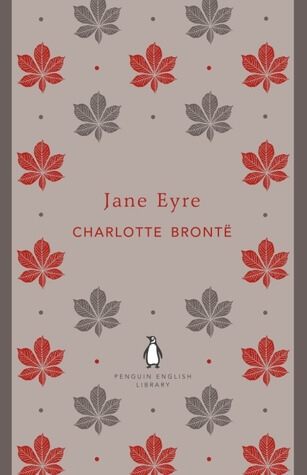
Jane Eyre 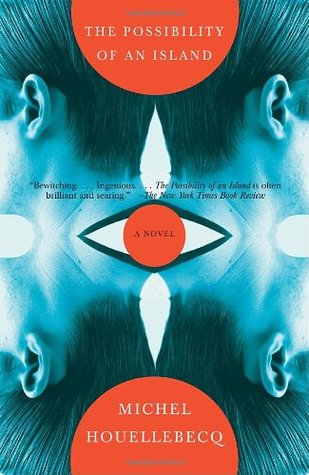
Possibility of an Island 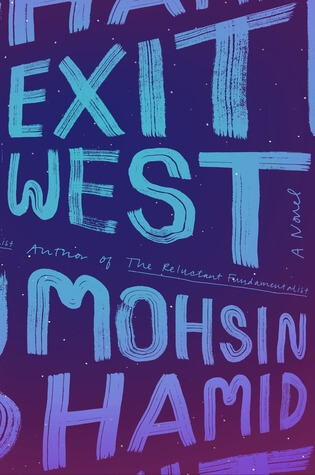
Exit West 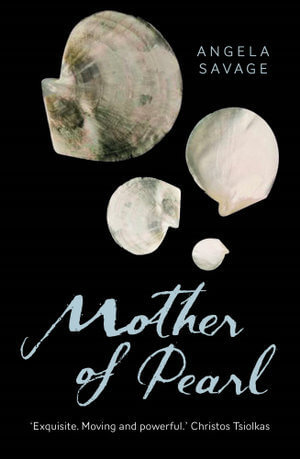
Mother of Pearl
# 2 Charlotte Brontë’s Jane Eyre
[My oldest copy is from 2006. I just for the new one last week.]
Classics, am I right? What is so wonderful about Jane? The fact that she reads? The fact that she is humble? I read Jane Eyre many many times while in school. In India, it’s one of those staple books like The Lord of Flies here in Canada. I’m due a reread on this but, along with Friday’s Child, my extra-long copy of Jane Eyre is the book I brought over with me when I moved from India.
# 4 Michel Houellebecq’s The Possibility of an Island
I met Michel Houellebecq in my Comparative Literature class in January 2018. Of our reading list of 8 that we were going to read in the 4-month term, I had to pick one book to do a presentation on. You guessed it – it was this book! Its synopsis was quite intriguing and, maybe the fact that it was the last book we were reading that term, that I chose this book. And I am glad that I did.
The Possibility of an Island, while being the first book that I analyzed with a critical eye, is also one of the most challenging reads I have ever undertaken. I saw so many themes in that book – religion, preserving our memories, the future of humanity and cloning, to name a few. For my presentation, I focused on the meaning of immortality and how that is portrayed in the book. I haven’t posted about this book on Armed with A Book yet but it is long overdue. Michel’s writing is complicated in a thought-provoking manner and the format of this book – diary entries from clones, describing the memories of the person they originate from – is one that I haven’t found again since.
# 3 Exit West by Mohsin Hamid
[Another one of those books I met at my Comparative Literature class.]
This was my first encounter with magical realism. I just could not understand how someone could walk through a door and end up somewhere else! The scientist in me needs to know! So badly that my final paper for my course was to explain these doors. I used The Fold by Peter Clines as my science fiction backing up the magic. I think I’m still learning to shut off my brain while reading magical realism.
# 5 Angela Savage’s Mother of Pearl
[The third book I reviewed on this blog!]
I have always had a soft spot for literary and women fiction. As a woman myself, I love reading about the experiences of other women and gain strength from them. Angela’s Mother of Pearl caught my eye for this reason. It explored the topic of surrogacy in a unique way. As a learner, I am curious to know new things and her take on surrogacy as a human experience was a new thing for me.
Since posting about it, I have learned a lot more. Mother of Pearl came out of Angela’s PHD research. As a researcher, I’m always looking for ways to make my research more impactful and relatable. I never thought that writing fiction about it would be such a powerful tool. What possibilities can research open the mind to for characters and settings? Angela’s exegesis has some answers. But so, does Angela herself and I’m proud to call her a friend that I can talk books with.
Each of these books have been teachers in their unique ways and genres, and I love the fact that I have studied with them.
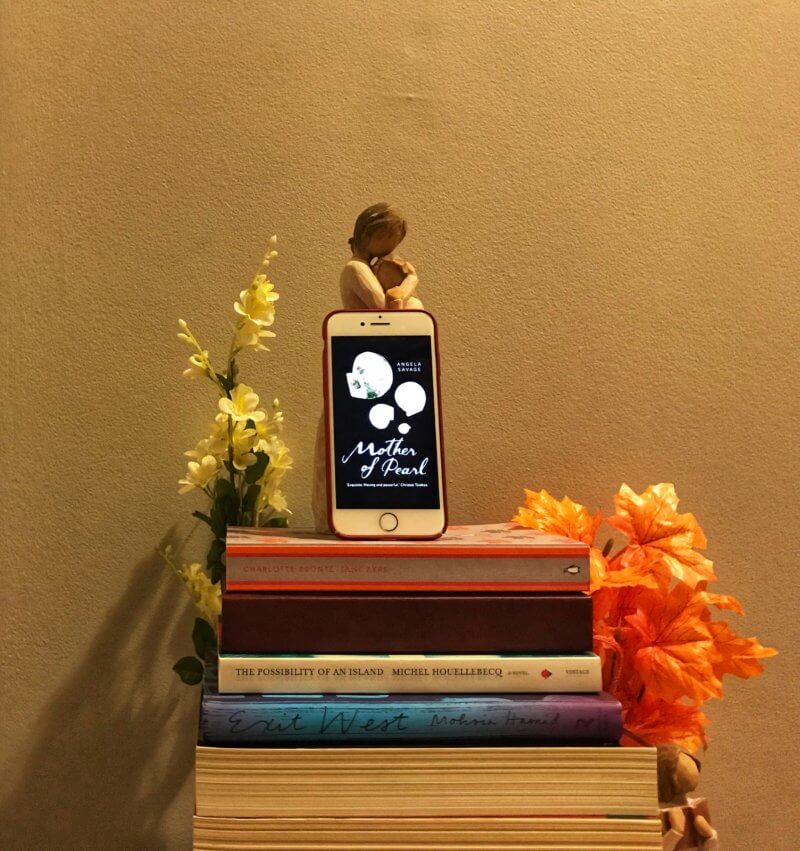
Conclusion
My love for the written word has only grown in the last couple months. Like I mentioned in the beginning, I used to write novels and poems up until 5 years ago. Writing for me, as a teenager and early twenties, was a way of getting to know myself and untangle the mess that my life seemed to be. I loved reading then and I still love it now. I do not know if I will ever write another novel, but every author that I talk to tells me to keep writing. And that is all I will do, apart from reading, while I hope one day inspiration strikes again. But if it doesn’t, it’s okay. I’m still a part of the #WritingCommunity, supporting writers in my own way.
On the 6th, I’ll complete 3 months of bookblogging and that day, I’ll be sharing my conversation with my bookblogger friend, Pam, who has the bookblog The Girl Who cried Books.
But this post is a different milestone altogether. This is the 100th post on Armed with A Book. Thank you so much for reading! I hope you enjoyed it. I truly appreciate your support. 🙂

Kriti! This is such an amazing and well-written post! Being a writer sure does pose a lot of questions and doubts, but we ARE writers, in more ways than just one. 🙂
Thanks so much, Pam! I’m so glad that I found you through bookblogging 🙂